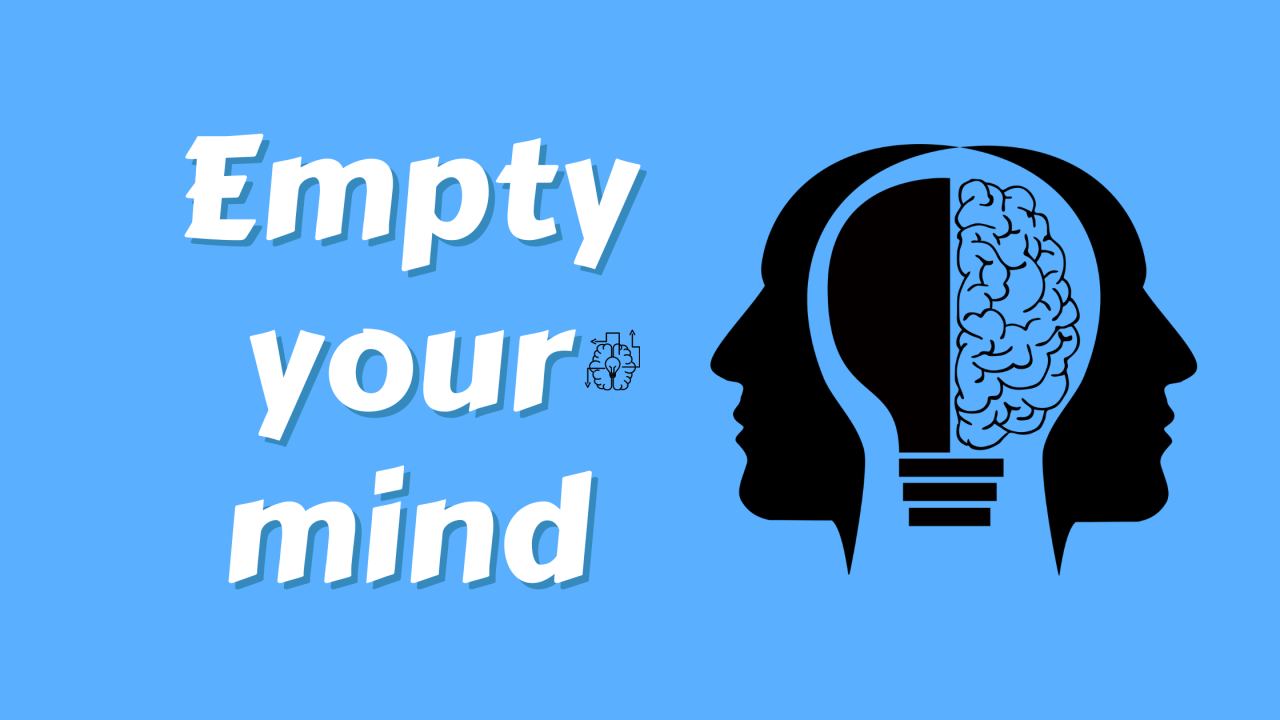Written by: developervsandhu
Personal Development
Empty Your Mind: The Art of Mental Decluttering
In today's fast-paced world, our minds are constantly bombarded with information, tasks, and responsibilities. Whether it's work, relationships, or social media, the never-ending stream of thoughts can often lead to stress, anxiety, and mental fatigue. But what if we could find peace amidst this chaos? The key lies in one powerful concept: emptying your mind.
What Does It Mean to Empty Your Mind?
Emptying your mind doesn’t mean forgetting everything or suppressing your thoughts. It’s about creating space for clarity, focus, and calm. Imagine your mind as a cluttered room filled with old furniture, junk, and unused items. To make room for something new, you need to declutter first. Similarly, emptying your mind helps you clear out unnecessary thoughts, making way for creativity, mindfulness, and relaxation.
Why Should You Empty Your Mind?
-
Reduces Stress: A cluttered mind is often a stressed mind. When your brain is constantly juggling different thoughts, it becomes overwhelming. Emptying your mind allows you to release the tension, providing relief from the daily pressures.
-
Improves Focus: When your mind is free from distractions, you can focus better on the task at hand. This heightened concentration leads to greater productivity and efficiency.
-
Boosts Creativity: Creative thinking thrives in a calm and open mental space. By emptying your mind, you give your brain the freedom to explore new ideas without the noise of everyday distractions.
-
Enhances Mindfulness: A clear mind is more receptive to being present in the moment. Practicing mindfulness becomes easier when your thoughts aren’t constantly racing, leading to better mental and emotional well-being.
Techniques to Empty Your Mind
-
Meditation: Meditation is one of the most effective ways to declutter your mind. Even a few minutes of deep breathing or mindfulness meditation can help you let go of unnecessary thoughts. Focus on your breath, and as thoughts arise, acknowledge them and gently let them pass without judgment.
-
Journaling: Writing down your thoughts can be a cathartic way to empty your mind. Journaling helps you release pent-up emotions, organize your thoughts, and gain insight into what’s occupying your mental space. Once it’s on paper, you’ll often feel lighter and more clear-headed.
-
Physical Activity: Movement can help shift mental clutter. Exercise, whether it’s yoga, a brisk walk, or hitting the gym, allows your body to release built-up tension and can serve as a form of mental reset.
-
Mindful Breathing: Simple breathing exercises can instantly calm a busy mind. Take deep, slow breaths, inhaling through your nose and exhaling through your mouth. Focus on the rhythm of your breath, letting go of any lingering thoughts.
-
Disconnect from Technology: Our digital lives contribute significantly to mental clutter. Try stepping away from screens, even if only for a short period. This digital detox will help reduce the information overload and give your mind a chance to recharge.
-
Visualize a Blank Slate: When you feel overwhelmed, close your eyes and visualize a blank canvas or an empty room. Imagine placing all your thoughts, worries, and distractions onto that canvas, then slowly erasing or clearing it away. This mental imagery can be incredibly calming.
The Benefits of an Emptied Mind
An empty mind isn’t about silence or inactivity—it’s about creating mental space for what truly matters. By practicing the art of mental decluttering, you’ll find that you’re more present, creative, and energized. Stress will no longer weigh you down, and you’ll approach life with a greater sense of clarity and purpose.
In a world where we're often encouraged to do more, think more, and achieve more, emptying your mind might just be the secret to finding balance and peace. Take a step back, breathe, and allow yourself to experience the beauty of a mind at rest.
Conclusion
Emptying your mind is not a one-time event, but rather a practice that requires patience and consistency. By integrating these simple techniques into your daily routine, you’ll notice a profound shift in your mental and emotional well-being. So, the next time life feels overwhelming, remember to pause, declutter, and make room for peace within.
Let go of the mental noise, embrace clarity, and experience the tranquility of an empty mind.
Login To Add Comment
No comments yet.
